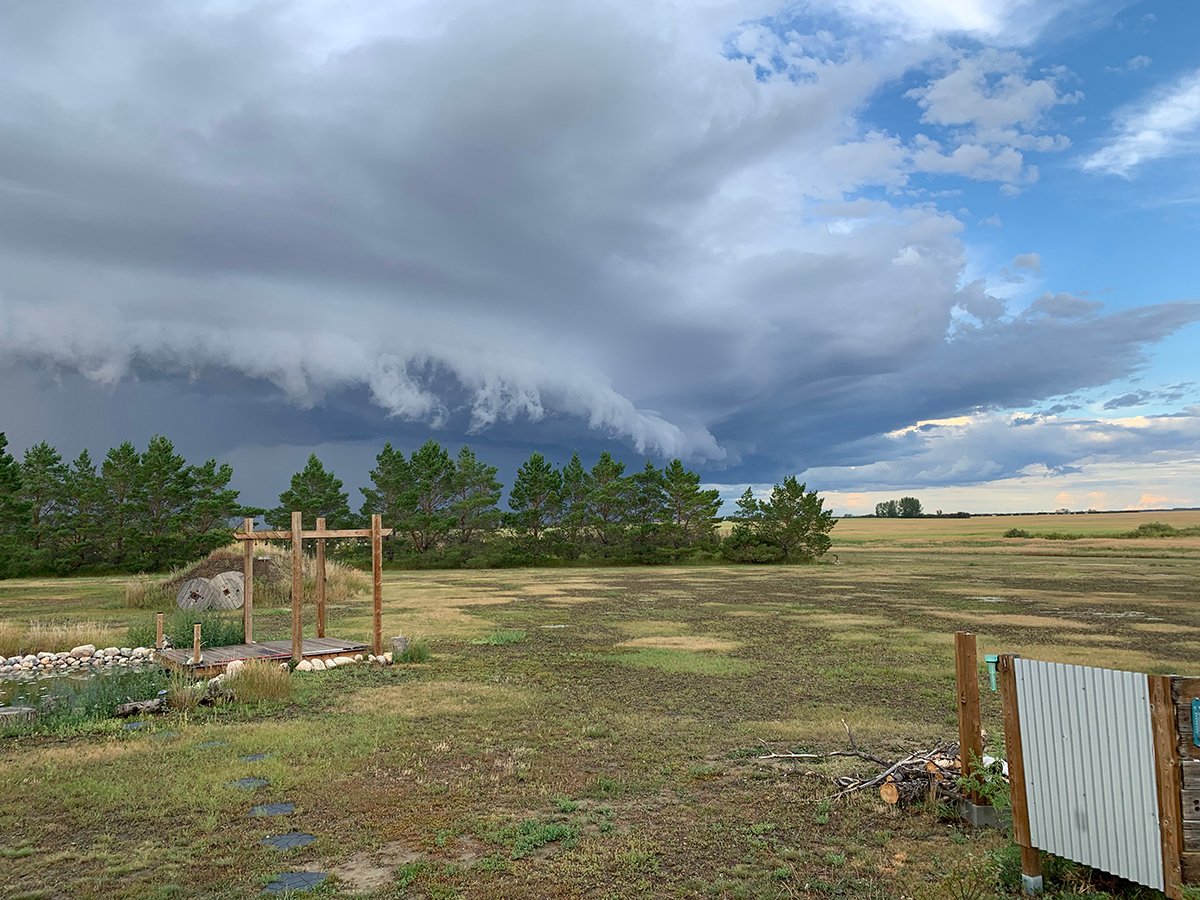LEDUC, Alta. – Bob Wasieczko got more than he paid for at a recent auction sale. He believes the air seeder he bought likely has spores from clubroot, a serious canola disease.
The Thorsby, Alta., farmer bought the air seeder from an auction near Leduc and he knows the farmer had clubroot on at least five quarters of land, but he didn’t think about that until after he bought the machine.
“I said to the wife, we have a cleanup job,” said Wasieczko.
“It’ll just have to be cleaned up good and hope we get it all. I’ll seed the wheat first,” he said while visiting at another farm auction.
Read Also

Storm dynamics and extreme rainfall
Besides moisture, instability and orographic lift, the next biggest factor that contributes to heavy or extreme rainfall is storm dynamics.
Clubroot has been discovered in at least 12 counties in Alberta. It is more prominent in the fertile farmland around Edmonton and it could devastate Alberta’s $3.2 billion canola industry.
Clubroot is a soil borne disease that infects the canola plant forming clubs on the roots that cut off nutrient uptake.
While researchers are still studying the disease that first appeared in Edmonton fields in 2003, they believe the most common way the disease is spread is through cultivation equipment. Clumps of mud or dirt from infected fields are transferred on cultivators, seed drills and harvest equipment to other fields.
Curtis Henkelman, a Leduc County agriculture fieldman, has spent the winter talking to farmers, fertilizer dealers and crop scouts helping to develop ways to prevent the spread of the disease.
He said farmers can’t expect custom operators or machinery dealers to spend hours cleaning their equipment if a farmer won’t take the time to knock the dirt lumps off his own machinery.
“A wire brush, broom and a hammer can knock the majority of soil off equipment,” he said.
Henkelman recommended farmers keep a diary of who comes onto the land and where the vehicles came from, to help limit the disease spread. Other farmers plan to power wash their equipment between fields.
“There’s guys that have always done their due diligence in cleaning and others have quackgrass, baler twine and big chunks of mud hanging off the equipment.”
Peter Van Someren of Millet insisted that an oil company that is building a pipeline along his land must steam clean all its equipment before working in his field.
“Clubroot is a concern. It’s such a long-term thing,” said Van Someren.
Clubroot can remain viable in the soil for up to 20 years. Even walking across a field or having agrologists take soil samples from fields is a worry for Van Someren.
“You have to be aware of these things.”
Jeremy Komives of Pigeon Lake said his biggest concern is custom operators who spend each spring driving across fields spreading fertilizer or seeding crops, possibly picking up clubroot on their equipment and transferring it to other fields.
Komives wondered if custom operators will steam clean their machinery before they leave each field.
“They’ll probably tell you to go to hell,” said Komives. “I’m very dependent on those custom operators.”
Cyril Maskoske of Leduc said he plans to knock the dirt off the equipment after each field and blow off excess dirt with an air compressor.
“We ain’t going to fool around washing everything off,” said Maskoske.
“It’s like everything else. If you’re going to get it, you’re going to get it, despite all the precautions.”














